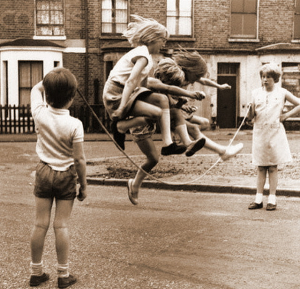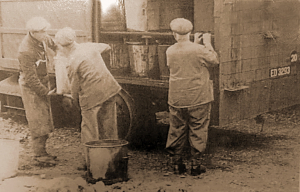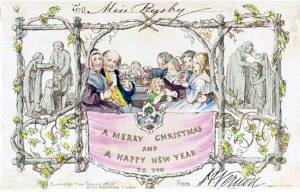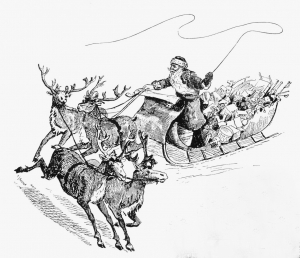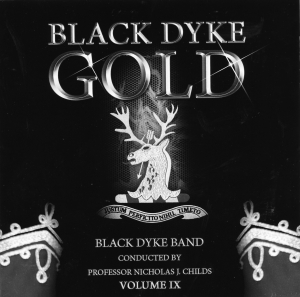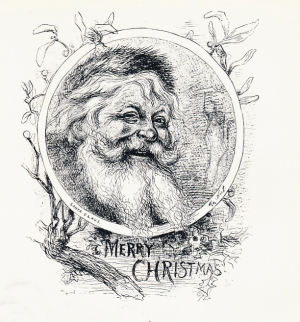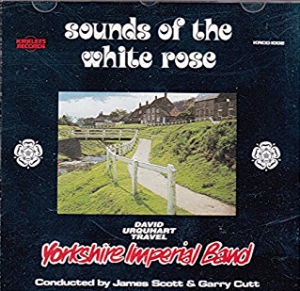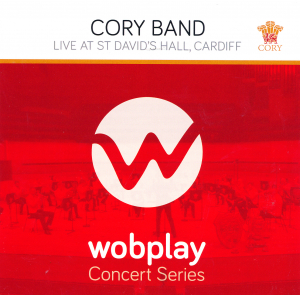
Talk Subjects
Chris Helme
No Console Games, No PC and hardly any TV either
Take away computers, consol gaming, DVD's and 100 channel TV which is available 24 hours a day and you have the 1950s! We had toys, but ours would fit under the bed and not need a separate room to put them in. Our biggest toys were of a natural kind, trees, woods, and our own imagination. Then we had dreams of being a Roy Rogers, Davy Crockett, or Robin Hood, now it's all about celebrity!
Old Trades and Jobs are gradually being taken over by modern technology or they are just simply disappearing altogether. Here are some of the old jobs with strange sounding names that you may or may be not remember. This image shows the Night Soil Tub men at work during the 1950s a vital job for centuries. Night Soil Men would discreetly remove human waste to be used in fertiliser. They would use long-handled shovels to dig out the waste from the makeshift bathrooms, pile it in carts, and haul it away, all in the dead of night. Each 'toilet' needed to be cleaned out about two or three times a year.
Now what about these jobs
1. ARMOURER - made suits of armour or plates of armour for buildings or ships etc.
2. BAGMAN - travelling salesman
3. BARD - poet or minstrel
4. BEAMER - winds the warp on the roller before putting it on the loom in the textile industry
5. CHAIR BODGER - travelling chair repairman
6. CHIFFONIER - wig maker or rag picker
7. CONEY CATCHER - rabbit catcher
8. DOG-WHIPPER - drove dogs away in a village
9. FAGETTER - made up faggots into bundles, seller of firewood
10. GIMLER - machinist involved in making a gimp, a kind of card
I hope all our listeners had an enjoyable Christmas. Now we have to look forward to 2022, let us hope that it is a big improvement on this last year.
Talking about New Year... Are you starting to think about New Year resolutions? If you do how long do they last, we all start off with the best of intentions but in most cases they soon drop off. Then you promise that you will do it again next year.
Enjoy the show...
Here we are with the third episode in my series of Bandstand Master Brass. This podcast is not replacing my regular Sunday Bandstand two-hour weekly show. This new show will give me the opportunity of presenting some of the longer pieces of music from the world of contests, solos and some of those concert pieces that rarely if ever are played to today, whether it be a live performance or on the radio.
If you have an suggestions, requests or questions about the world of brass bands please contact me on my email: This email address is being protected from spambots. You need JavaScript enabled to view it.
This podcast will not be weekly but will be about every four weeks.
Enjoy the podcast.
Chris
Our featured image is one of the first Christmas cards sent in 1843 by Sir Henry Cole of the V&A Museum in London. If you just happen to have one tucked away in the dark corner of a cupboard or an old shoebox at home, the last one to be sold was at an auction in New York and was sold for over $10,000. If you do have one I am sure you will have the best New Year you have ever had.... Enjoy the show...
We are now well into our Christmas count down. Looking around the band press and brass band websites bands look to have full diaries right up to Christmas Eve. All our shows right through to the first week in the New Year will be playing festive music. You will hear many old favourites and we hope the new music we are introducing you to this Christmas will gradually over time become new favourties. We are featuring bands and soloists from around the brass banding world. If you have a favourite carol or piece of festive music just send your request to This email address is being protected from spambots. You need JavaScript enabled to view it. We will be pleased to play it for you and share it with our world wide audience.....Enjoy
We are now into our Christmas count down. Hopefully all brass bands will have a full diary right up to Christmas Eve. Each show up to the first week in the New Year will be playing festive music. Music that will have been old favourites for many years, hopefully the new music I will introduce you to will in time become new favourties.
There will be bands and soloists from around the brass banding world. If you have a favourite and would like to hear a carol or favourite piece of festive music just send me your request to This email address is being protected from spambots. You need JavaScript enabled to view it. We will be pleased to play it for you and share it with our world wide audience.....Enjoy
This week's featured image is the CD cover for the 1988 recording by the Yorkshire Imperial Band 'Sounds of the White Rose'. The recording first appeared as a long-playing record in 1988 and was later re-released in a CD format. From this CD we are featuring Slavonic Rhapsody No. 1 Op 114 written by Carl Friedemann - whilst many listeners will have heard and played this piece but how much do you know about the composer.
Carl Bert Ulrich Friedemann (29.4. 1862 – 9.4. 1952) was a German-Swiss composer, conductor, and musician. He wrote symphonic music, chamber music, choral works, songs and 140 marches, many of which are still played by marching bands around the world.
He was born in Mücheln at Merseburg, in the modern Saxony-Anhalt state of Germany. As a child he received lessons for piano and violin. He studied music in Halle (Saale) and with the court conductor Emil Büchner in Erfurt. By 1883 he conducted the orchestra of the Reunion Theatre in Erfurt; he left this appointment in 1885. Meanwhile, he had also learned to play the clarinet. He then joined the band of the 71st Infantry Regiment in Erfurt and continued his musical training, also appearing as a soloist in local concerts as a violinist and pianist. He also served as conductor of various choirs and choral societies. On November 5, 1890, he passed the military band examination at the Academy of Music in Berlin.
On September 20, 1891, he became conductor of the band of the 113th Infantry Regiment based in Freiburg im Breisgau. He worked here for 21 years and his fame as a conductor and composer reached beyond national borders. In 1901 he was appointed Royal Kapellmeister in Baden and in 1906 he was appointed Royal Music Director. In January 1912 Friedemann conducted his regimental band at the Café Kropf in Freiburg for his farewell concert. For health reasons he left military music in 1912.
A new commitment was waiting for him in Bern, Switzerland. There he became head of the Bern Town Band, Stadtmusik Bern, and raised this wind orchestra to a respectable level. Friedemann made Bern's civic music well-known; he was on the jury of the Federal Music Festival 1906 in Freiburg, which awarded Bern's band the 1st Gold Medal in the first rank of the first city in that category. With this band he made trips to Germany, France, Italy, and Spain. When he retired in 1933, he was also made conductor laureate. In 1935 he was appointed Civic Music Professor because of his outstanding service. He also founded his own publishing company there and a music school. Friedemann died in Bern.
Compositions
- Admiral Marsch
- Attaque de cavallerie: Charakterstück, Op. 145
- Bayrisch blau Marsch
- Concertino, Op. 182
- Ehestandsgeplauder, Op. 54
- Fürst Egon Marsch, Op. 172
- Fürst Max Egon-Fanfare, Op. 152
- Fürstenberg-Fanfare
- Kaiser Friedrich Marsch, Op. 66
- Kaiser-Manöver-Marsch, Op. 81
- Paraphrase on Radecke's Song "Aus der Jugendzeit", Op. 146
- Rhapsody for Violin and Orchestra
- Slavonic Rhapsody No. 1, Op. 114
- Slavonic Rhapsody No. 2, Op. 269
- Slavonic Rhapsody No. 3, Op. 297
- Symphony No. 1
- Symphony No. 2
- Gruss an Bern(March)
On this week’s show we have his Slavonic Rhapsody No. 1 which is an old favourite of brass bands.
Talks Available
All the presentations are timed to last up to an hour except where shown - questions are gladly taken after the presentation. All have been presented to male, female and mixed audiences of varying age groups.
-
A Postcard from the Past
The Sunny Vale Pleasure Gardens, Halifax - Yorkshire’s Alton Towers of the…
-
All in a Days Work
Reminiscences from 30 years in the Police Service – (humorous lecture presentation)…
-
Legends from the world of Brass Bands
(Info-tainment – digital slides & music) – 1 hour presentation.
-
A Week in May
A story based on the Murder of Lord Frederick Cavendish (of the…
- Memories of Christmas Past
-
The Road to Publication
In 1979 I was asked to assist in presenting a series of…
-
How we used to live
We have all seen and experienced changes in our lives. Bring back…
- Holiday Memories from the Past
-
Other Folks Rubbish (Not suited to a Zoom presentation)
With a local history theme… – (thought provoking humorous lecture presentation) –…
- So you want to be a Pirate ? - The life of a Pirate was not all that it seemed
- Superstitions, New Year Resolutions and the Origins of St Valentine's Day
- Brighouse at Work
-
Sorry but I am not able to accept any more face to face talk bookings at the present time ONLY ZOOM TALKS


